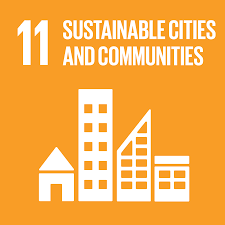WHY SHOULD BUSINESSES CARE ABOUT FOOD WASTE?
- Thinking Beyond Business
- Jul 9, 2021
- 3 min read
Having a conscious approach to waste management is a key component of running a sustainable business. Why? Because waste is one of the main causes of the degradation of our planet. In this post, we focus on food waste since food constitutes the major source of waste worldwide and according to the Environmental Protection Agency (EPA) Its impact on our environment is huge.

How can we be part of the solution?
Each of us has the power to contribute to regenerating our environment by just acting more consciously and investing time and resources in waste management. As we explain in our free guide, “Environmental Tips to Green your Business,” waste management is the process to understand and better execute the collection, transportation, treatment, and disposal of waste. Proper management involves transforming waste into reusable or recyclable products that otherwise would have been categorized as trash.
Being aware of the waste your business produces contributes to reducing carbon emissions, reusing materials, extending the life cycle of a product, and saving you money. The first step is tracking the amount of waste your business generates
because you can’t manage what you don’t measure. Conducting a waste audit can help identify how much and why waste is generated.
Scary Numbers
In the United States, almost 40% of the food is wasted at some point in the food supply chain, according to the Environmental Protection Agency (EPA). They also estimate that food reaches landfills and incinerators more than any other single material in our everyday trash, constituting 22% of municipal solid waste.
Food that ends in our landfills produces an invisible gas called methane, a potent greenhouse gas that enters our atmosphere and contributes to climate change. Methane is almost twenty times more impactful to our environment than carbon dioxide. According to the EPA, landfills in the US are the third-largest source of human-related methane emissions. In this sense, diverting food becomes crucial in our efforts to rescue our planet.
The EPA developed a Food Recovery Hierarchy with proposed solutions to this problem.

Source Reduction
The most environmentally friendly and preferred solution to food waste is to generate less waste. Both businesses and individuals can learn to effectively reduce their wasted food by implementing reduction habits such as planned purchases, ensuring proper storage, implementing reduced meal portions, etc. By engaging in these initiatives, you will be collaborating to achieve the UN SDGs #12 and 13.


Feed Hungry People
The most humanitarian solution is to donate extra food to people in need, partnering with local food banks and soup kitchens. It is important to find these organizations and develop a relationship of trust and mutual help. Helping the most vulnerable in our communities is another way to express and act on our commitment to building a better world. This solution also contributes to combating hunger and collaborates to achieve UN SDG #2

Industrial Uses
Some food waste such as oils, grease, and fats can be turned into biodiesel fuel. Biodiesel is an alternative fuel produced from renewable resources. This solution also promotes alternative energy sources and collaborates to achieve UN SDGs #7 and 9.


Composting
One of the simplest ways to deal with food waste is to compost it, as it is a great way to reuse your food scraps in a way that benefits the environment rather than harms it. Composting provides vital nutrients to help improve our soil in gardens. Gardeners and farmers add compost to the soil to improve its physical properties, reducing chemical fertilizers' needs.
Composting is created by combining organic products such as fruits and vegetable scraps, eggshells, coffee grounds, tea bags, hair from pets, meat and poultry, and flowers, among a list of natural elements with bulky agents such as wood chips that accelerate the process of breaking down the combined elements. Once the combination is mature enough, compost can be used to enhance soil fertility. Composting contributes to achieving UN SDGs #11 and 15.


We strongly suggest that you start your own compost. However, if you don’t have space or resources to do it yourself, you can hire the services of professional waste management companies such as Curbside Compost (works in NY and CT) or contact your local authorities or look online to learn about how they can help you properly manage your food waste. Most towns and cities accept food waste as part of their commitment to cut down on the amount of waste they send to landfills. Some towns have municipal dumpsites and weekly locations where you can drop off your food scraps.
We encourage you as business owners and executives to be more mindful of food waste, another important step into becoming a sustainable business. Contact us to help you develop your business sustainability action plan that includes waste management policies and procedures.






Comments